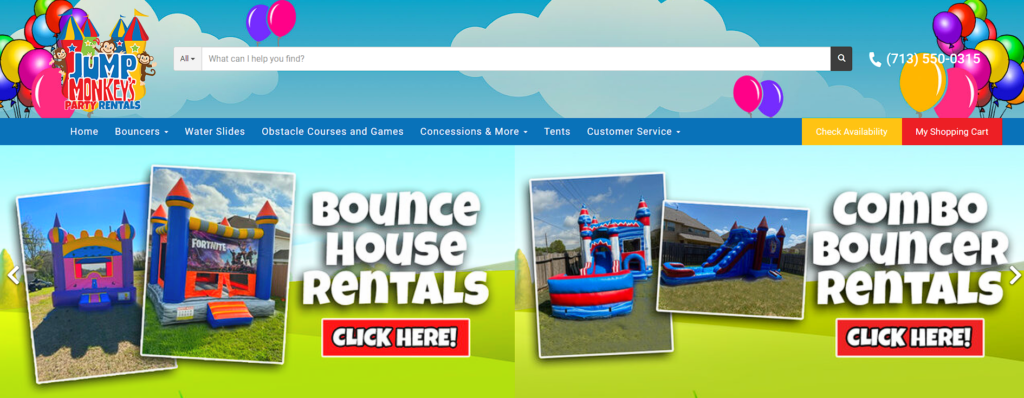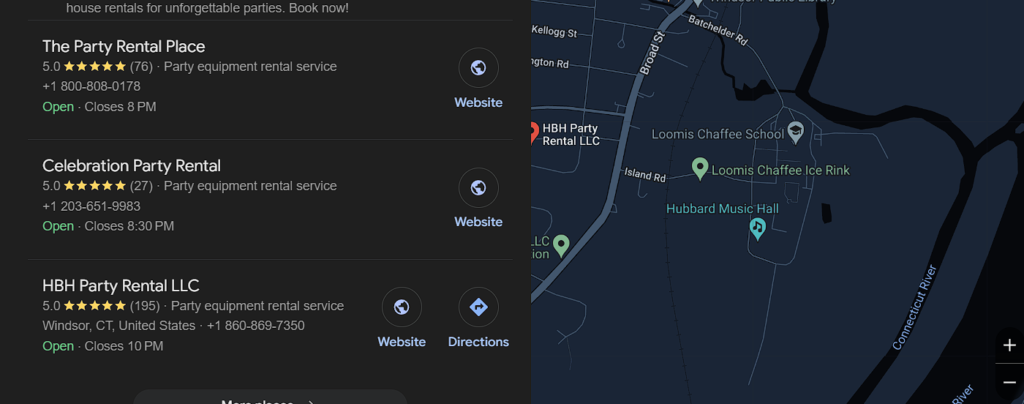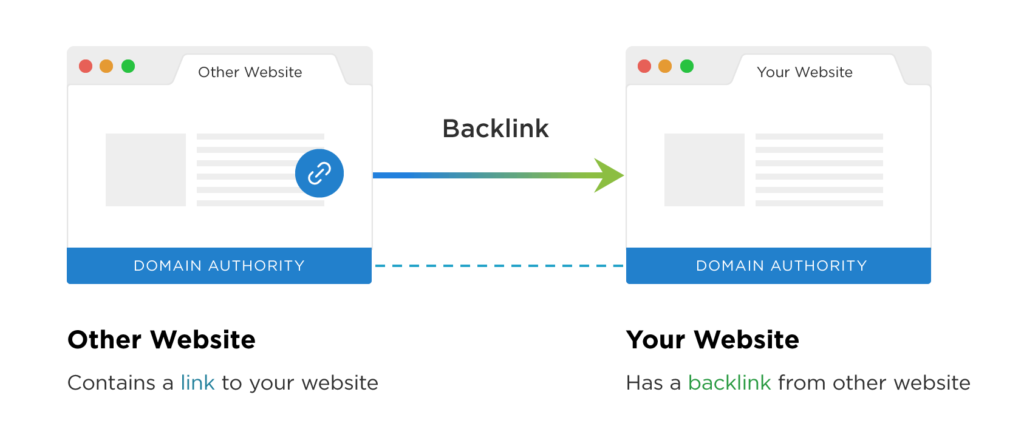Local search engine optimization (SEO) has become essential for businesses aiming to attract customers in their vicinity. Optimizing your online presence for local searches is crucial for party rental businesses, which often rely on local clientele for events and gatherings. This article delves into strategies to help your party rental website gain visibility and thrive in the competitive local market.

Understanding Local SEO
Local SEO optimizes your online presence to attract more business from relevant local searches.
Unlike general SEO, which focuses on broad keywords and global reach, local SEO targets specific geographical areas, making it more relevant for businesses with a physical location. Understanding local search intent is vital for party rental companies, as most customers seek services near them, particularly when planning events.

Keyword Research and Optimization
Keyword research and optimization are paramount to effectively optimizing for local SEO. The first step is to identify local keywords that potential customers might use. These keywords often include location-specific terms, such as “party rentals in [City Name].” Long-tail keywords are more specific phrases and can also attract targeted traffic.
Utilizing keyword research tools can help uncover valuable keywords that align with your business offerings. Once identified, it’s essential to implement these keywords throughout your website’s content, including meta descriptions, title tags, and header tags in your content management system.
Optimizing Your Google My Business (GMB) Profile
Another critical aspect of local SEO is optimizing your Google My Business (GMB) profile. Setting up and verifying your GMB profile allows your business to appear in local search results and Google Maps.
Optimizing your GMB listing involves filling out all relevant information, including business categories, hours of operation, and services offered. Maintaining NAP (Name, Address, Phone number) consistency across all platforms is crucial for local search rankings.
Building Local Citations and Directory Listings
Building local citations and directory listings also plays a significant role in improving your local SEO. Citations, which mention your business name and details on other websites, help boost your credibility in local searches.
Submitting your business to local directories can enhance your visibility in local and map packs. Utilizing citation management tools can simplify this process and ensure your information is accurate and consistent.
Need our help?
Encouraging and Managing Online Reviews
Online reviews are another essential factor in local SEO, influencing consumer behavior and search rankings. Encouraging customers to leave reviews can enhance your business’s credibility and visibility.
Strategies for gathering reviews may include providing excellent customer service and asking satisfied clients to share their experiences. Responding to positive and negative reviews is equally important to managing your online reputation effectively.
Creating Locally Relevant Content
Creating locally relevant content is vital for attracting local customers. Developing content that resonates with your community can help position your party rental business as a local authority.
Blogging about local events, community involvement, and special promotions can engage your audience and improve your search rankings. Implementing schema markup can enhance your content’s visibility by providing search engines with structured data about your offerings.
Building Local Backlinks
Building local backlinks—links from other local businesses or organizations — can significantly impact your local SEO efforts. Local backlinks signal to search engines that your business is part of the community.
Strategies for acquiring local links include partnering with local events, sponsoring community activities, and collaborating with local influencers. Analyzing your backlink profile for domain and page authority metrics can help you understand your online standing.

Technical SEO for Local Optimization
Technical SEO is also crucial for local optimization. Ensuring your website is mobile-friendly is paramount, as many users search for smartphone services. Improving site speed and performance enhances user experience and reduces bounce rates. Implementing sitemaps and robots.txt files helps search engines crawl and index your site more effectively.
Leveraging Social Media for Local SEO
Social media can amplify your local SEO efforts by promoting your content and engaging with the local community. Sharing posts about local events, customer experiences, and promotions can enhance customer engagement and build brand loyalty. Engaging with your local audience on social platforms also encourages user-generated content, increasing your visibility.
Monitoring and Analyzing Your Local SEO Performance
Finally, monitoring and analyzing your local SEO performance is essential for long-term success. Tracking key metrics, such as search engine visibility and geo-targeting, helps you understand how well your strategies work. Utilizing tools designed for monitoring local SEO performance allows you to adjust your strategy based on performance data and competitor analysis.
Frequently Asked Questions
How does local SEO differ from general SEO?
While general SEO focuses on improving your website’s visibility for broad keywords across all geographical areas, local SEO targets specific geographic regions, making it more relevant for businesses with a physical presence.
What is NAP consistency, and why is it important?
NAP stands for Name, Address, and Phone number. NAP consistency across all online platforms and directories is essential for local SEO because it helps search engines verify your business information, improving your rankings in local search results.
How can I encourage customers to leave online reviews?
To encourage online reviews, focus on providing excellent customer service and ask satisfied customers to share their experiences. You can also follow up with clients after an event, requesting feedback and directing them to your review platforms.

